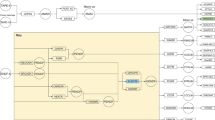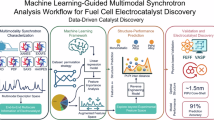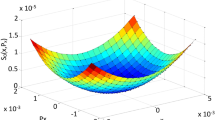Abstract
THE synchrotron principle has been suggested by Veksler1 and McMillan2 as a possible means of accelerating electrons to high energies. This letter describes modifications which have been made to a 4 MeV. betatron to convert it to an 8 MeV. synchrotron. The experiments prove that the synchrotron principle is a valid one for electron acceleration.
This is a preview of subscription content, access via your institution
Access options
Subscribe to this journal
Receive 51 print issues and online access
$199.00 per year
only $3.90 per issue
Buy this article
- Purchase on SpringerLink
- Instant access to the full article PDF.
USD 39.95
Prices may be subject to local taxes which are calculated during checkout
Similar content being viewed by others
References
Veksler, J. Phys. Acad. Sci. U.S.S.R., 9, 153 (1945).
Mcmillan, Phys. Rev., 68, 143 (1945).
Pollock, Phys. Rev., 69, 125 (1946).
Kerst, Phys. Rev., 60, 47 (1941).
Kaye and Binks, Brit. J. Radiol., 13, 193 (1940).
Hansen, J. Appl. Phys., 10, 39 (1939).
Author information
Authors and Affiliations
Rights and permissions
About this article
Cite this article
GOWARD, F., BARNES, D. Experimental 8 Mev. Synchrotron for Electron Acceleration. Nature 158, 413 (1946). https://doi.org/10.1038/158413a0
Issue date:
DOI: https://doi.org/10.1038/158413a0
This article is cited by
-
30-Mev. Electron Synchrotron
Nature (1948)



